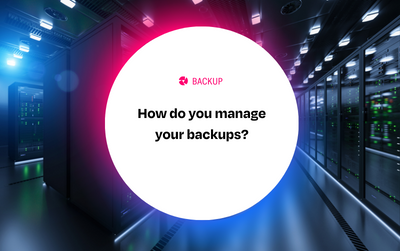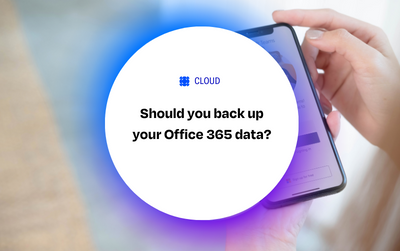Unlocking ROI: The Benefits of Upgrading Data Protection Systems
In today's fast-paced digital world, the security of sensitive information has never been more crucial. With technology playing an increasingly vital role in our lives and the constant rise of cyber threats, the consequences of data breaches are severe, ranging from financial losses to reputational damage and legal implications.
Upgrading your data protection systems is a necessary step to safeguard your valuable data and ensure uninterrupted business operations. However, it can be challenging to justify the additional expense, especially when working with a tight budget. That is, unless you can demonstrate a return on investment (ROI) that is truly compelling.
Identifying the limitations of outdated systems
Outdated data protection systems pose significant limitations and risks to your organisation as they may lack the necessary features and capabilities, not only to be performant but to effectively combat the evolving cyber threats.
A backup environment needs to be regularly managed and configured in order to adapt to the new features developed by your solution provider as well as to remain relevant against the evolving cyber threats. Omit those change and you can leave your data vulnerable to unauthorised access, data breaches, and data loss.
Moreover, outdated systems are often not compliant with the latest data protection regulations and industry standards. This can expose your organisation to legal penalties and reputational damage.
Identifying the limitations of your current data protection systems is essential in understanding the urgency and necessity of making changes to your current solution or, if necessary, to update to a more suitable one. It will also help you build a strong case when needing to demonstrate the need for a larger investment for your department.
Maximising ROI through enhanced security and compliance
Upgrading your data protection systems comes with a myriad of benefits that can positively impact your organisation's overall performance and bottom line.
Financial Savings from Preventing Data Breaches
The most immediate advantage is the lessened risk and impact of data breaches. These incidents can be financially devastating, encompassing not only immediate expenses like fines and legal costs but also long-term repercussions such as customer attrition and reduced shareholder value. Enhanced systems, boasting cutting-edge security features, alleviate these risks, leading to significant financial savings.
Enhancing Operational Efficiency and Productivity
The latest in data protection technology simplifies data management workflows. It cuts down the time and effort spent on data backup and restoration. Swift recovery from data-related setbacks minimises downtime, ensuring business activities are not excessively interrupted. This boost in operational efficiency often leads to heightened productivity and improved resource deployment, favourably impacting the company's financial standing.
Compliance and Sidestepping Penalties
Lowering Additional Costs
Scalability and Preparing for the Future
By upgrading your data protection environment, you demonstrate your commitment to maintaining the privacy and integrity of your stakeholders' information. This not only fosters trust and loyalty but also positions your organisation as a responsible and reliable entity in the market.
It is not only a wise investment in safeguarding your sensitive information but also a strategic move towards maximising your ROI. By understanding the importance of data protection, identifying the limitations of outdated systems, exploring the benefits of upgrading, and maximising security and compliance, you can unlock the full potential of your organisation's data protection efforts.




